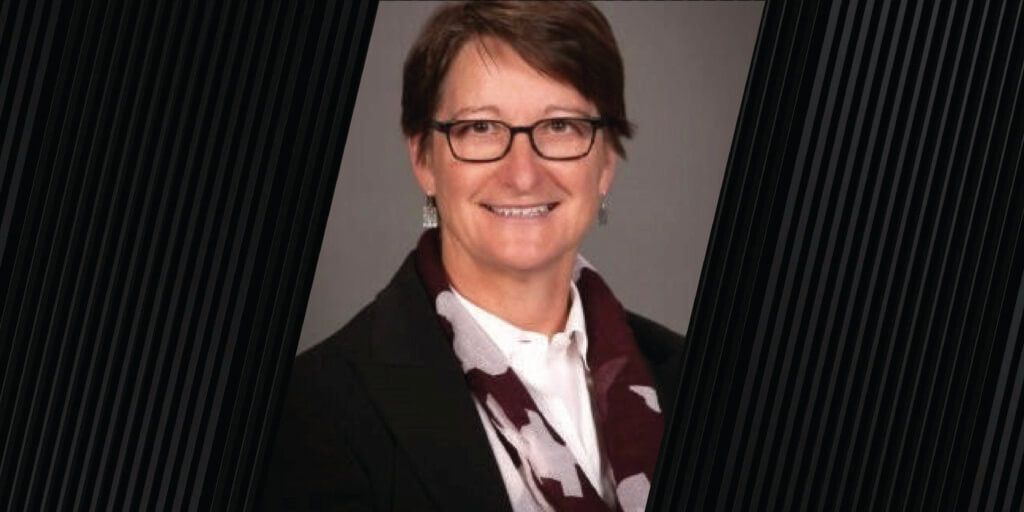
This year’s American College of Veterinary Surgeons (ACVS) Surgery Summit featured the announcement of the recipients of a trio of prestigious awards, and one of the award winners is a Purdue Veterinary Medicine alumna. Dr. Karen Cornell (PU DVM ’88; PhD ’98) was selected by the ACVS Board of Regents as the recipient of the 2024 Al and Carolyn Schiller Distinguished Service Award, which was presented at the conference on October 24 in Pheonix, Arizona.
The Al and Carolyn Schiller Distinguished Service Award is given to recognize exceptional contributions to the ACVS. Dr. Cornell earned both her DVM and PhD degrees at the Purdue University College of Veterinary Medicine in 1988 and 1998, respectively. After completing the DVM program, Dr. Cornell worked in a small animal private practice before returning to Purdue to complete a small animal surgical residency and earn her PhD degree in cancer biology.
Dr. Cornell’s record of service to the ACVS dates back to the time when she became board-certified and began volunteering as a member of the editorial review board for Veterinary Surgery. She transitioned to continuing education, serving with the Small Animal Surgery Scientific Session Committee. Dr. Cornell served on the Examination Committee and as its chair. She also served as a regent on the Board of Regents and as ACVS president and chair. During that time, Dr. Cornell led the organization through strategic planning, the creation of fellowship programs, and the move to a digital examination process. Dr. Cornell has been a frequent speaker at the ACVS Surgery Summit and former ACVS Veterinary Symposium, demonstrating her prominence as a surgeon and communication skills leader.
Dr. Cornell is associate dean for professional programs at the Texas A&M University College of Veterinary Medicine and Biomedical Sciences. She received the Purdue University College of Veterinary Medicine’s Distinguished Alumna Award in 2009.
In addition to her ACVS service, Dr. Cornell has demonstrated a passion for professional development and surgical training of all veterinary professionals in her faculty roles at Texas A&M University and previously, the University of Georgia. Dr. Cornell has been responsible for the surgical education of more than 4,000 veterinarians. Her passion for teaching is clear in the multiple accolades with which she has been honored, including the Carl J. Norden/Pfizer/Zoetis Distinguished Teaching Award twice, the Student AVMA Community Outreach Excellence Award, and the Josiah Meigs Distinguished Teaching Professorship.
